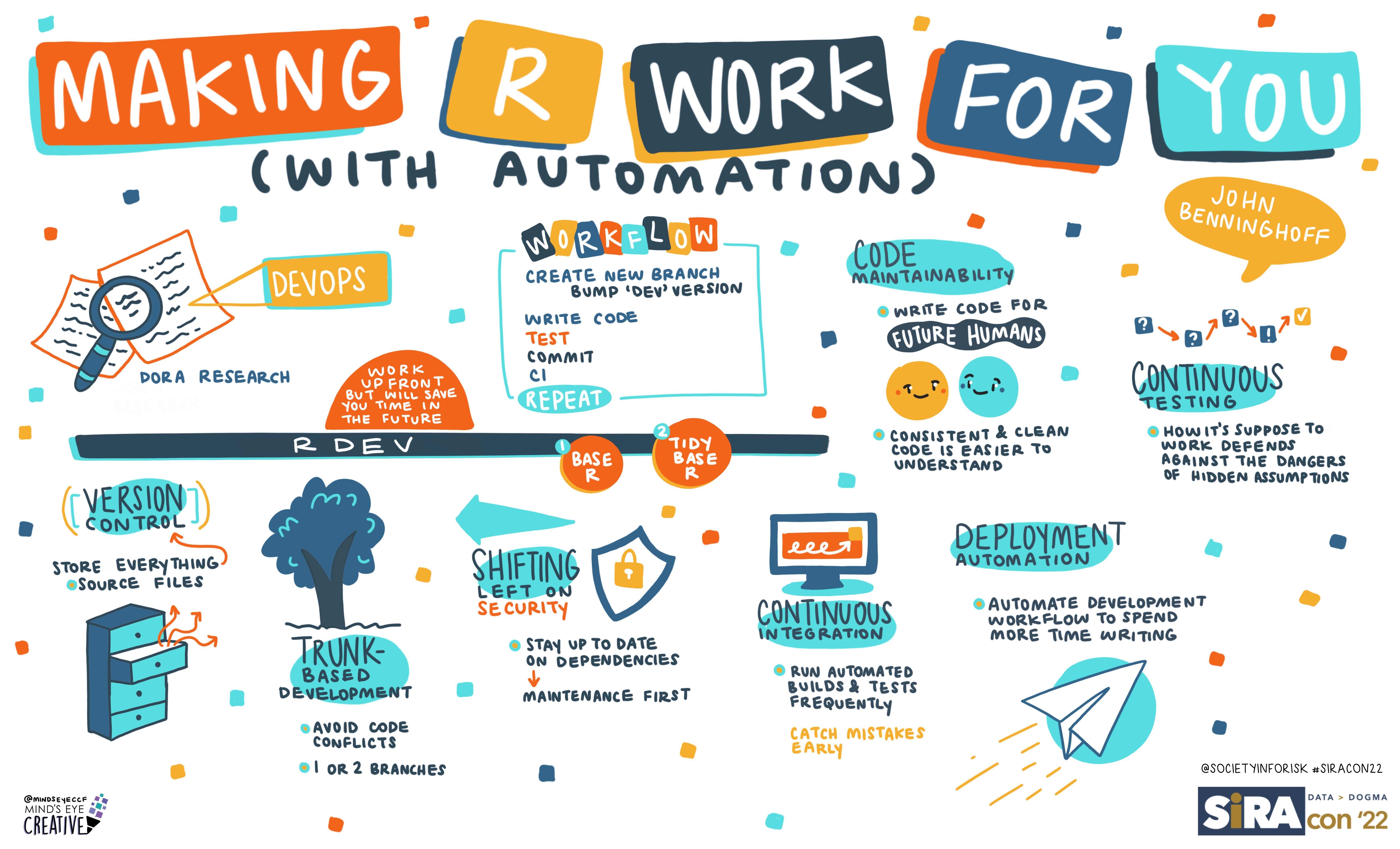SIRAcon 2022
· @jabenninghoffAs I posted yesterday, I’m working through cataloging my past presentations, and I’m nearly done! Today I’m sharing a talk from SIRAcon 2022 that’s much different than what I typically do, “Making R Work for You (With Automation)”.
Many SIRA members do data analysis as part of their work, and talk about the results of their analysis at SIRAcon. However, we don’t often talk about the mechanics of our craft, how we go about doing data analysis. However, in 2019, Elliot Murphy gave a talk about just that, by showing how to use Jupyter (Python) and R Notebooks for data analysis. His presentation inspired me to start working with R using R Notebooks, and I wanted to share what I’d learned, and built to automate my workflow.
I think the talk went reasonably well, although it was hard to say for sure, as the conference was once again virtual that year. Unfortunately, some of the key attendees weren’t able to attend, and I didn’t get their feedback - although later one of them did watch the replay and shared that what I did was similar to his approach.
Aside from learning how to write better R code, I learned a couple of things from the experience (both doing it and talking about it):
- Doing something brings deeper knowledge than reading about something. One of my goals with R was to learn good software engineering practices (documentation, testing, source code control, etc.) including DevOps practices (continuous integration and continuos delivery, CI/CD). While my experience was limited mainly to myself, I did come away with a better and deeper understanding of what it’s like to write modern software.
- If writing software was more physically demanding, we’d probably do a better job creating tools and automation to help with the writing. As I noted in my talk, the carpenters who worked on our house spent a whole day setting up their environment to make it easier to move materials they were removing to the dumpster, and didn’t try to just brute-force the work. Experience and the challenge of physical labor led them to an economy of movement.
A copy of my slides are here, and the visual notes from the talk are below!
